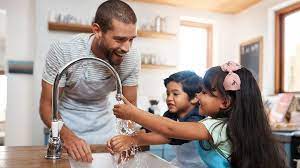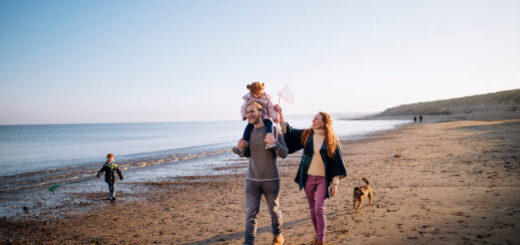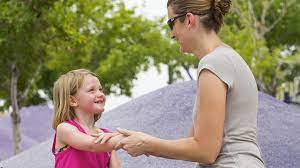Ten Tips for Eco-Friendly Parenting
Pregnancy can be a wonderful time to adopt earth-friendly behaviours. Choose nontoxic household cleaners, pesticides, and paints to limit chemical exposure. Many household cleaners and paints are nontoxic because they are either plant-based or safe for use in the home. Animal studies have shown that pesticide exposure at high levels can lead to miscarriages, low birth weight and other health problems. Consider buying organic for leafy greens and thin-skinned fruit like strawberries and peaches. Some cosmetics contain harmful substances; ask your doctor for alternatives.
Make a nontoxic nursery.
VOCs can be found in furniture, paint, and carpeting. VOCs can cause nausea, headaches, and organ damage if exposed to long-term exposure. VOC levels indoors are typically two to five times greater than outdoor. Furniture made from solid wood and finished with low emissions is a good way to limit VOCs in your nursery. Low paints- or non-VOC should be used. The temperature and humidity should be kept low but not too high. More VOCs are released when the environment is warmer and more humid.
Cloth Diapers vs Disposable
Disposable diapers can clog landfills. Cloth diapers are more energy-intensive and require multiple items of washing. To save water and electricity, consider a high-efficiency washer. Disposables can be more convenient for parents. There are a variety of disposables available. Some are washable, and others can be flushed or compostable. Baby washcloths can replace disposable baby wipes.
Breastfeeding vs Bottle feeding
Breastfeeding is easy, convenient, and doesn’t require any preparation. Breastfeeding a baby is an environmentally-friendly option. Breast milk can pass certain substances, limiting your exposure to chemicals like lead, mercury, or cigarette smoke. Breastfeeding is not recommended for women with certain medical conditions or taking certain medications.
Solid Foods for Baby and Beyond
Baby food can be made in minutes by simply pureeing or mashing vegetables and fruits. It is easy to reduce salt, sugar, preservatives, and other ingredients in homemade food. Pesticides can be particularly sensitive to children. Pesticide residue is more common in certain foods, such as pears, apples, and peaches. You might consider buying organic versions of these foods. Keep your children’s health in mind as they get older.
Conserve Your Bath Time
Bathing your baby only a few times per week can help you save water and energy. Too much bathing and too many scented products can cause skin irritation. Shower curtains made from PVC can contain VOCs. Look for shower curtains made of fabric. Phthalates are chemicals that can cause a variety of health problems. They are found in many plastics, shampoos and lotions, and powders. Avoid phthalates and added fragrances.
Reduce, reuse, recycle
Ask your parents to tell you what gear is essential and what can be discarded. Secondhand clothes and books are worth looking at, especially if you don’t plan to use them for long. Avoid used breast pumps and used car seats. They may not be up to current safety standards or could have been damaged in an accident. For safety information and recalls, don’t hesitate to contact the manufacturer before you purchase a crib. Don’t keep outgrown clothes and toys.
Green Cleaning
Some household cleaning products contain harmful chemicals that can be dangerous for young children. Make your nontoxic cleaners, such as homemade solutions made with vinegar, baking soda, and lemon juice. Children often wash a lot of laundries, so make sure to use gentle detergents on the skin and environment.
Take Care of Plastics
There is much debate about the safety of certain plastic toys. Some plastic containers and chemicals could cause harm. It is difficult to determine which plastics contain BPA. Avoid plastics marked 3 or 6. Avoid microwave plastics, including the plastic wrap. Glass baby bottles and food storage vessels may be an option. Plastic toys may not be an option if you have a baby who can play with cloth toys or wooden blocks.
Set an example of excellence
Children absorb everything around them like sponges. Teach them how to conserve resources and take care of the earth. Reduce your mileage and turn off lights to conserve energy. Through hiking in the woods or playing at the park, you can build respect for the natural world. Your children will learn to appreciate the beauty and importance of the natural world if you instil curiosity.



